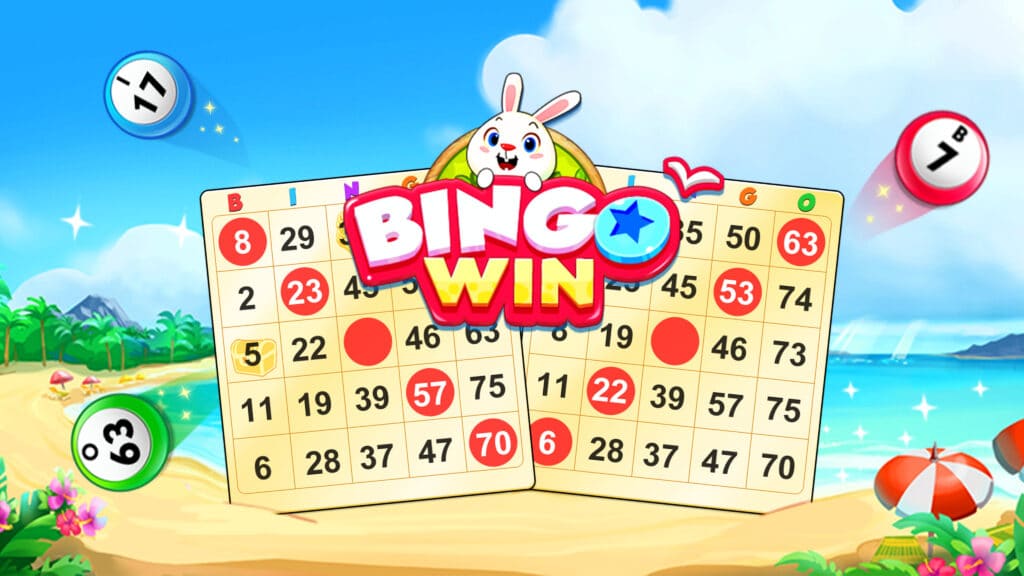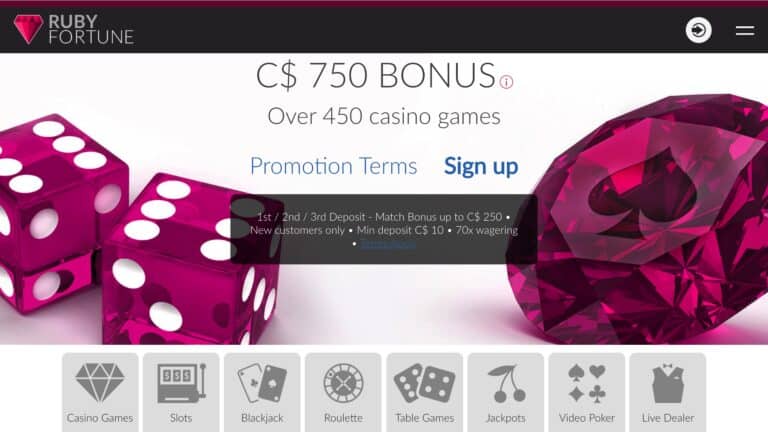In the dazzling universe of online casinos, where fortunes can be won or lost with a click, the critical question for every player, from the wide-eyed beginner to the seasoned strategist, is: is your online casino fair? This query transcends the simple desire to win; it's about the very foundation of trust and integrity in the digital gambling age. For both newcomers and veterans of online wagering, understanding the principles of fairness is not just advisable—it's essential for a secure and enjoyable gaming journey.
Deconstructing Online Casino Fairness: More Than Just Luck
Fairness in the context of online casinos is a complex construct, far exceeding the simplistic notion of luck. It's a comprehensive ecosystem built upon transparency, ethical operations, and strict adherence to regulatory standards, all designed to ensure that games are not manipulated against the player beyond the inherent statistical advantage casinos are entitled to, known as the house edge. A truly fair online casino is committed to providing a level playing field, where outcomes are determined by genuine chance, and players can engage with confidence and peace of mind.
The Regulatory Framework: Licensing and Oversight
The bedrock of fairness in the online gambling industry is the regulatory framework established by licensing bodies. These are governmental or quasi-governmental organizations tasked with overseeing and regulating online gambling operators. Obtaining a license from a reputable jurisdiction is not merely a formality; it's a rigorous process that demands adherence to a comprehensive set of standards and practices. The most respected regulatory bodies, such as the UK Gambling Commission (UKGC), the Malta Gaming Authority (MGA), and the Gibraltar Gambling Commissioner (GGC), are known for their stringent requirements and robust enforcement mechanisms.
The licensing process involves exhaustive vetting of casino operators, encompassing financial audits to ensure stability and solvency, criminal background checks on key personnel to maintain integrity, and thorough technical evaluations of gaming software to guarantee fairness. These regulatory bodies also impose strict rules related to player protection, responsible gambling initiatives, and anti-money laundering protocols. Casinos operating under these licenses are subject to continuous monitoring and regular audits to ensure ongoing compliance. Failure to meet regulatory standards can result in substantial fines, license suspension, or even revocation, underscoring the seriousness with which these bodies uphold fairness.
For players, the presence of a license from a reputable jurisdiction is a primary indicator of a casino's commitment to fair play. Licensing information is typically displayed at the footer of the casino's website, often with a clickable logo that directs to the regulator's online registry, allowing for verification of the license's validity. However, it's important to recognize that the stringency of regulations varies across jurisdictions. Licenses from less reputable or "offshore" jurisdictions may offer weaker player protection and less rigorous oversight compared to those from established bodies like the UKGC or MGA. Therefore, players should not only check for a license but also familiarize themselves with the reputation and regulatory strength of the licensing authority.
Random Number Generators (RNGs): The Engine of Chance
At the heart of every fair online casino game is the Random Number Generator (RNG), a sophisticated algorithmic system that generates sequences of numbers that are statistically indistinguishable from random. In the context of online casinos, RNGs are the engines of chance, determining the outcomes of games with no predictable pattern. Whether it's the spin of a roulette wheel, the shuffle of a deck of cards in blackjack, or the arrangement of symbols on slot machine reels, the RNG is the invisible hand that dictates the results.
For an RNG to be deemed fair and reliable, it must meet rigorous technical criteria. It must produce numbers that exhibit true randomness, meaning they are unpredictable, uniformly distributed, and statistically independent. This ensures that each game round is a new event, unaffected by previous outcomes. To validate the integrity of RNGs, reputable online casinos rely on independent testing agencies. These agencies, such as eCOGRA and iTech Labs, employ advanced statistical testing methodologies to evaluate RNGs. The testing process involves subjecting the RNG to millions, sometimes billions, of simulated rounds, analyzing the output data for any patterns, biases, or deviations from expected randomness. Certification from these agencies, often displayed as a seal of approval on the casino's website, is a crucial validation of the RNG's fairness and reliability.
Players should actively seek out casinos that openly disclose their RNG certification and testing information. Transparency in this area is a strong indicator of a casino's commitment to fair gaming practices. However, it's essential to understand that RNGs, while ensuring randomness, do not negate the house edge. They simply ensure that within the game's inherent mathematical structure, outcomes are fairly and randomly generated. The house edge remains a statistical reality, representing the casino's long-term advantage, even with perfectly fair RNGs.
Independent Game Audits: Scrutinizing Game Mechanics and Payouts
Beyond RNG certification, comprehensive game audits are another layer of verification for online casino fairness. Independent testing laboratories conduct these audits to assess not just the RNG but the entire ecosystem of a casino's games, scrutinizing game mechanics, payout structures, and adherence to advertised Return to Player (RTP) percentages. These audits are crucial for ensuring that games function as designed and that players receive the payouts they are entitled to based on the game's rules and odds. Leading testing agencies in this domain include eCOGRA, Gaming Laboratories International (GLI), and iTech Labs, all of which are globally recognized for their rigorous and impartial testing standards.
Game audits involve a multifaceted approach. Testing agencies examine the game's source code to verify the underlying logic and ensure that it aligns with the advertised rules and payout tables. They analyze payout percentages and RTP values to confirm their accuracy and consistency. Auditors also assess game mechanics to identify any potential vulnerabilities or biases that could compromise fairness. For example, in a blackjack game audit, testers would verify that the card shuffling algorithm is truly random, that the dealing process is fair, and that payouts for winning hands are correctly calculated according to the game's paytable. Similarly, for slot games, audits would confirm the randomness of reel spins, the accuracy of symbol payouts, and the overall RTP of the game.
The Return to Player (RTP) percentage is a key metric verified during game audits. Expressed as a percentage, RTP indicates the proportion of wagered money that a game is statistically expected to return to players over an extended period. For instance, a slot game with a 97% RTP is designed to return, on average, $97 in winnings for every $100 wagered over millions of spins. Audits ensure that these RTP percentages are not only accurately calculated but also consistently delivered in actual gameplay. Casinos that undergo regular game audits often display seals of approval from testing agencies, which players can often click on to view detailed audit reports or validation certificates. This transparency provides players with tangible evidence of the casino's commitment to fair gaming and game integrity.
The House Edge vs. Fair Play: Understanding the Distinction
It's vital to differentiate between the concept of the house edge and the principle of fair play. The house edge is an inherent mathematical advantage built into every casino game, whether online or land-based. It represents the casino's statistical profit margin over the long run. For example, in American Roulette, with its two zero pockets (0 and 00), the house edge is approximately 5.26%. This means that, statistically, for every $100 wagered on Roulette over time, the casino expects to retain about $5.26 as profit.
The house edge is not a sign of unfairness; it's the business model of casinos. It's how they ensure profitability and sustainability. Fairness, in this context, means that the games operate according to their published rules and odds, and the RNG ensures that outcomes are random within those pre-defined probabilities. A fair casino will be transparent about the house edge of its games, typically providing this information in the game rules or information sections. This allows players to understand the statistical odds they are facing and make informed decisions about their gameplay. Games with lower house edges, such as Blackjack (with optimal strategy) or Baccarat, generally offer players statistically better odds of winning compared to games with higher house edges, like Keno or some slot machines. However, even in games with a low house edge, the casino retains a mathematical advantage over time.
Responsible Gambling: A Casino's Ethical Obligation
Fair play in online casinos extends beyond just the technical aspects of game mechanics and regulations; it also encompasses a strong commitment to responsible gambling. Ethical and fair online casinos recognize their responsibility to protect players from the potential harms associated with gambling and provide tools and resources to promote healthy gambling habits. This includes offering a suite of responsible gambling tools, such as deposit limits, wagering limits, session time limits, and self-exclusion options. Deposit limits allow players to control the amount of money they deposit into their accounts over a specific period. Wagering limits help manage spending by restricting the amount players can wager. Session time limits encourage players to take breaks and prevent prolonged gambling sessions. Self-exclusion options allow players to voluntarily ban themselves from the casino for a set period, providing a cooling-off period or a more permanent break.
Beyond providing tools, responsible gambling also involves proactive measures by the casino to identify and assist players who may be developing problem gambling behaviors. This can include monitoring player activity for signs of excessive gambling, such as increased betting frequency, chasing losses, or spending beyond their means. Casinos may also implement procedures for intervening and offering support to players identified as being at risk. Fair casinos also ensure that their marketing and advertising practices are responsible and do not target vulnerable individuals or promote gambling as a solution to financial problems. They should also provide clear and accessible information about responsible gambling, including links to support organizations and helplines. A casino's commitment to responsible gambling is an integral part of its ethical operation and a key indicator of its overall fairness and player-centric approach. Players should look for casinos that prominently feature their responsible gambling policies and resources, often found in dedicated sections of their websites, demonstrating a genuine commitment to player well-being.
Player Rights and Dispute Resolution: Ensuring Fair Treatment
In a fair online casino environment, players are not just customers; they are participants with rights and entitlements. A cornerstone of fairness is the establishment of clear player rights and effective dispute resolution mechanisms. Players have the right to expect fair games, transparent terms and conditions, timely payouts, and responsible casino conduct. When these expectations are not met, or when disputes arise, players should have access to clear and accessible procedures for seeking resolution.
Reputable online casinos typically have a multi-tiered complaints procedure. The first step is usually to contact the casino's customer support department, which should be equipped to handle routine queries and resolve minor issues. If the issue is more complex or cannot be resolved by customer support, players should have the option to escalate their complaint to a designated dispute resolution officer or department within the casino. This internal process should be transparent, with clear timelines for investigation and response. Casinos should also provide players with clear information on how to escalate their complaint further if they remain dissatisfied with the internal resolution.
For casinos licensed by reputable jurisdictions, players have the additional right to escalate their complaints to the licensing authority. Regulatory bodies like the UKGC and MGA have player protection departments that handle complaints against their licensees. Submitting a complaint to the licensing authority can initiate an independent investigation, and if the regulator finds in favor of the player, they can compel the casino to take corrective action, which may include paying winnings, reversing unfair decisions, or even imposing fines or sanctions on the casino. This external oversight provides a crucial safety net for players, ensuring that casinos are held accountable for their actions and that there is an independent avenue for redress. In addition to regulatory bodies, some jurisdictions also recognize or utilize Alternative Dispute Resolution (ADR) services for gambling-related disputes. These independent third-party organizations offer mediation and arbitration services to help resolve conflicts between players and casinos in a less formal and potentially more efficient manner than legal proceedings. Players should familiarize themselves with the dispute resolution options available at their chosen casino, as these mechanisms are vital for ensuring fair treatment and protecting their rights as online gamblers.
Spotting Red Flags: Identifying Potentially Unfair Casinos
While the majority of licensed online casinos strive to operate fairly and ethically, some unscrupulous operators may engage in practices that raise serious concerns about fairness. Being able to recognize red flags is crucial for players to protect themselves and avoid potentially unfair or rogue casinos. These warning signs can range from subtle indicators to blatant misconduct, and vigilance is key to safeguarding your online gambling experience.
One of the most significant red flags is the absence of a valid gambling license or licensing from a questionable jurisdiction. Operating without a license from a recognized regulatory body is a major cause for concern, as it indicates a lack of oversight and accountability. Similarly, licenses from jurisdictions known for lax regulations or poor enforcement offer little assurance of fair play. Players should be wary of casinos licensed in obscure or offshore jurisdictions that are not commonly associated with reputable online gambling regulation. Always verify the license's validity by checking the licensing body's official website.
Another red flag is the presence of unrealistically generous bonuses and promotions, especially those that seem too good to be true. While bonuses can be attractive, excessively large bonuses with extremely low wagering requirements or no deposit required can be a lure used by unfair casinos to attract players before implementing unfair practices. Always scrutinize bonus terms and conditions carefully, paying particular attention to wagering requirements, maximum withdrawal limits, game restrictions, and time limits. Terms that are overly complex, ambiguous, or excessively restrictive can be warning signs.
Consistently slow or denied payouts, without legitimate justification, are a serious red flag indicating potential financial instability or unfair practices. Fair casinos process withdrawals promptly and efficiently, adhering to their stated withdrawal processing times. If a casino routinely delays payouts, makes excuses, imposes excessive verification procedures, or outright refuses to pay legitimate winnings without valid reasons (such as breach of terms or suspected fraud, with evidence provided), it should raise alarm bells. Players should be particularly wary of casinos that impose very low withdrawal limits or have clauses that allow them to void winnings arbitrarily.
Unresponsive, unhelpful, or evasive customer support can also be a red flag. Reputable casinos prioritize customer satisfaction and provide readily accessible, knowledgeable, and helpful customer support through multiple channels. Difficulty contacting support, slow response times, generic or canned responses, and an inability to resolve issues effectively can indicate a lack of player care and potentially unfair operational practices. Casinos that make it difficult for players to get assistance or resolve problems should be approached with caution.
Overwhelmingly negative player reviews and complaints across multiple reputable player review sites and gambling forums are a significant warning sign. While occasional negative reviews are normal, a consistent pattern of complaints highlighting unfairness, rigged games, payment problems, or poor customer service should be taken seriously. Investigate player feedback from multiple sources and be cautious of casinos with overwhelmingly negative reputations. However, it's also important to consider the source and context of reviews, as some may be unfounded, malicious, or part of smear campaigns. Look for patterns and consistency in complaints across different platforms.
Finally, a general lack of transparency regarding casino ownership, licensing details, RNG certification, game audit reports, and RTP information can be a red flag. Fair and reputable casinos operate with openness and transparency, making key information readily available to players on their websites. Casinos that are opaque, secretive, or reluctant to provide this information may be hiding something or operating with less than ethical practices. Transparency is a hallmark of trustworthiness in the online gambling industry.
Conclusion: Navigating the Online Casino Landscape with Confidence
In the dynamic and often opaque world of online casinos, ensuring fairness is not just a hope—it's a necessity for a positive and trustworthy gambling experience. By equipping yourself with knowledge and understanding the key indicators of fairness – robust regulation and licensing, certified Random Number Generators, independent game audits, transparent Return to Player percentages, a strong commitment to responsible gambling, and clear player rights and dispute resolution mechanisms – you can navigate the online casino landscape with greater confidence and make informed choices. Always prioritize casinos licensed by reputable authorities, actively seek out certifications from recognized testing agencies, carefully review terms and conditions, and be vigilant for red flags that signal potentially unfair operators. Remember, while the house edge is inherent in casino games, true fairness lies in the casino's commitment to transparency, integrity, and the protection of its players.
The online gambling industry is in a state of constant evolution, with ongoing advancements in technology, changing regulatory landscapes, and increasing scrutiny on player protection and responsible gaming. Staying informed about the latest developments in online casino fairness is not just beneficial—it's crucial for players who want to ensure a safe and equitable gambling experience. As the industry matures, the emphasis on transparency, accountability, and ethical conduct is likely to intensify, further enhancing the trustworthiness and reliability of online casinos. For gamblers, this trajectory points towards a future where online entertainment can be enjoyed with greater assurance, security, and peace of mind, provided they continue to choose their platforms wisely, advocate for responsible gambling practices, and demand fairness and transparency from the operators they entrust with their entertainment and wagers. By playing smart, staying informed, and demanding fairness, you can maximize your enjoyment of online casinos while minimizing the risks and ensuring a gambling experience that is both thrilling and trustworthy.
External Resources:



